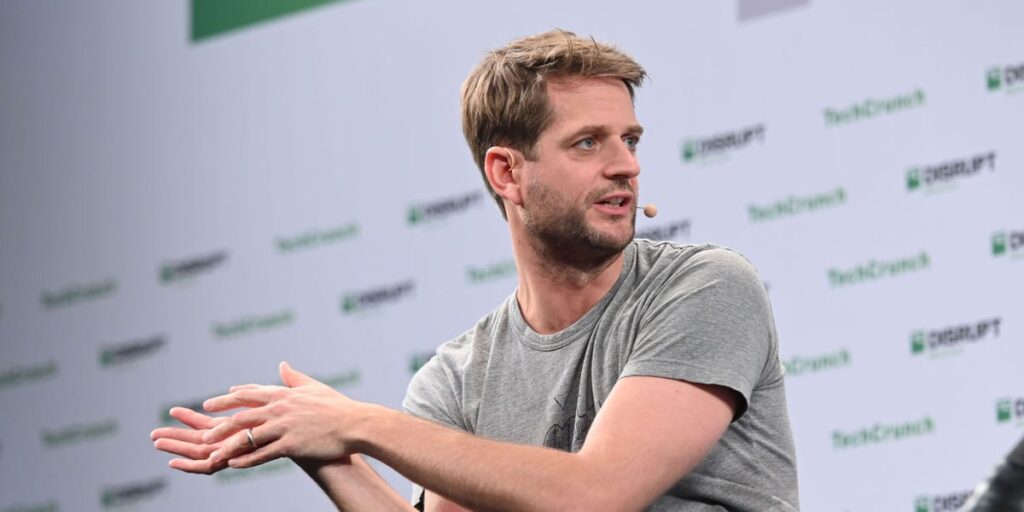- Klarna CEO Sebastian Siemiatkowski says AI can perform his job as it has reasoning capabilities.
- The buy-now, pay-later firm’s cofounder said the realization made him feel “gloomy.”
- Siemiatkowski previously said Klarna stopped hiring because AI “can already do all the jobs.”
Sebastian Siemiatkowski has said AI is capable of performing his job as CEO of Klarna — but he’s not thrilled about the prospect.
The cofounder of the buy-now, pay-later firm said in an X post on Monday, “AI is capable of doing all our jobs, my own included,” because it now has reasoning capabilities.
“I am not necessarily super excited about this,” he added. “On the contrary my work to me is a super important part of who I am, and realizing it might become unnecessary is gloomy.”
Siemiatkowski explained that AI can already routinely solve simple problems using basic reasoning. Because complex problems can be “divided into smaller and more basic reasoning tasks that are combined,” the building blocks for AI solving advanced tasks already exist, he said.
“However, how exactly we will combine those building blocks of reason and knowledge to replicate the work we do today is not yet entirely solved,” Siemiatkowski said.
This isn’t the first time Siemiatkowski has voiced concerns about AI’s potential to disrupt traditional roles. Siemiatkowski told Bloomberg in December that he believed AI could “already do all of the jobs that we as humans do.”
Klarna itself has embraced AI. In February, the Swedish company said its AI assistant was “doing the equivalent work” of 700 full-time human agents.
The Klarna chief has also been outspoken about the firm’s use of AI and how it’s impacted the workforce. In August, he wrote in another X post, “AI allows us to be fewer in total.”
In October, Siemiatkowski appeared on the “Grit” podcast and said that Klarna “stopped hiring due to AI, so we’re shrinking because we have a natural attrition rate of 20%.” He later clarified that Klarna continues to hire some engineers.
Meanwhile, the fintech company has been gearing up for an IPO in the US. In November, it announced it confidentially submitted draft registration documents to the Securities and Exchange Commission.
The following month the company told its employees it would start random drug testing for staff in Sweden from January. Its director of people and HR, Mikaela Mijatovic, told employees in a Slack post the move was “part of a larger effort to strengthen security across Klarna.”
Klarna didn’t immediately respond to Business Insider’s request for comment.
Do you work for Klarna? Got a tip? Contact the reporter, Jyoti Mann, via the encrypted messaging app Signal at jyotimann.11 or via email at jmann@businessinsider.com. Reach out through a nonwork device.
Read the full article here


